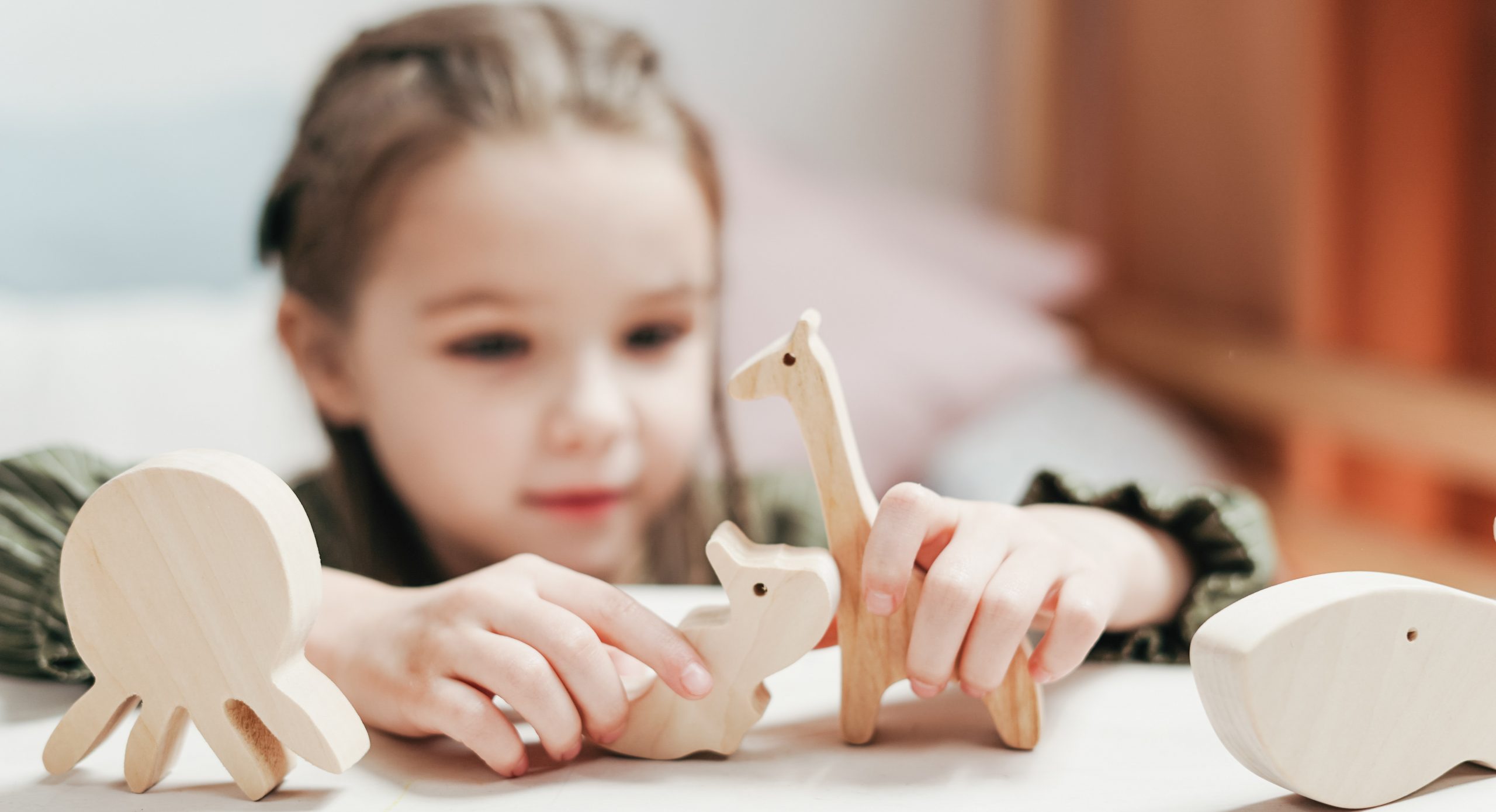Speech and language development begins at birth with a baby’s first cry. A baby cries to communicate and will vary his cry according to his needs, such as hunger and pain. Within the first year, there is miraculous development happening in a baby. From cooing and babbling to combining consonants and vowels together to make meaningful words.
A Speech-Language Pathologist, or SLP, works with children who have a variety of disabilities that may affect their language, voice, fluency, articulation, or swallowing abilities. As an SLP working in the schools, I work with children who have communication disorders that adversely impact their educational performance. Good communication skills lead to successful speaking, thinking, reading, writing, and learning.
What to Watch For
 By 24 months, a child is expected to use at least 100 words. A child should be able to formulate a sentence of three to four words by age three. By age five, a child is expected to use sentences of increasing length and complexity. Below is information from the American Speech-Language-Hearing Association:
By 24 months, a child is expected to use at least 100 words. A child should be able to formulate a sentence of three to four words by age three. By age five, a child is expected to use sentences of increasing length and complexity. Below is information from the American Speech-Language-Hearing Association:
Signs of language problems include:
- Birth–3 months: Not smiling or playing with others
- 4–7 months: Not babbling
- 7–12 months: Making only a few sounds. Not using gestures, like waving or pointing.
- 7 months–2 years: Not understanding what others say
- 12–18 months: Saying only a few words
- 1½–2 years: Not putting two words together
- 2 years: Saying fewer than 50 words
- 2–3 years: Having trouble playing and talking with other children
- 2½–3 years: Having problems with early reading and writing. For example, your child may not like to draw or look at books.
Signs of a speech sound disorder in young children include:
- 1–2 years: Not saying p, b, m, h, and w the right way in words most of the time
- 2–3 years: Not saying k, g, f, t, d, and n the right way in words most of the time. Being hard to understand, even to people who know the child well.
Children do develop at their own rate, so it is important to know that there is a range of development. Some children may talk early and some may take a little longer.
Activities To Promote Speech and Language Development
At home, there are many simple tasks you can do with your child to help facilitate good speech and language skills. You may already have a lot of these items laying around the house, or you can get creative. Children love to play, so getting down on their level and teaching them through play-based, hands-on learning activities can get them motivated and having fun. Here are a few fun and easy activities you can do right at home:
Indoor Activities:
- Reading books. Children learn so much through reading. Brown Bear Brown Bear What Do You See? by Bill Martin Jr./Eric Carle could be used to teach animals and colors.
- Singing songs. Head, Shoulders, Knees, and Toes can teach your child to label a variety of body parts or The Wheels on the Bus can teach a variety of concepts: up/down, open/shut, etc.
- Farm set/farm animal play. Teach your child about a variety of farm animals and the noises they make.
Outdoor Activities:
- Bubbles. Every child LOVES bubbles. My 13-month-old daughter just learned to say “bubbles” because we do them so often. You can teach more words like “pop,” “all gone,” “uh oh” (when the bubbles inevitably spill), and also to request items “more bubbles please.”
- Sand box. Sand is a sensory-friendly toy. Kids love digging in the dirt and playing in the sand. Teach words like dig, fill, pour, or even draw letters or shapes in the sand.
- Water table. Fill your water table with anything (boats, ducks, cars, fish). You can work on labeling each item, their colors, and requesting.
The American Speech-Language-Hearing Association also provides a list here of some great activities you can do at home to help encourage speech and language development in your little ones.
What To Do if You Have Concerns
If you are concerned about your child’s speech and language development, don’t hesitate to voice your concerns with your pediatrician or contact Early On. Early On is Michigan’s system for helping infants and toddlers, birth to age three, who have developmental delays or are at risk for delays due to certain health conditions. It’s designed to help families find the social, health, and educational services that will promote the development of their infants and toddlers with special needs. Research has shown that by addressing delays early on—especially between birth and age three—we can more effectively impact a child’s development, even into adulthood. Early intervention is crucial to help foster your child’s development.
Please contact me if you have any questions about your child’s speech and language development. I am happy to help provide resources or information to help your child grow. Everyone deserves a voice.










